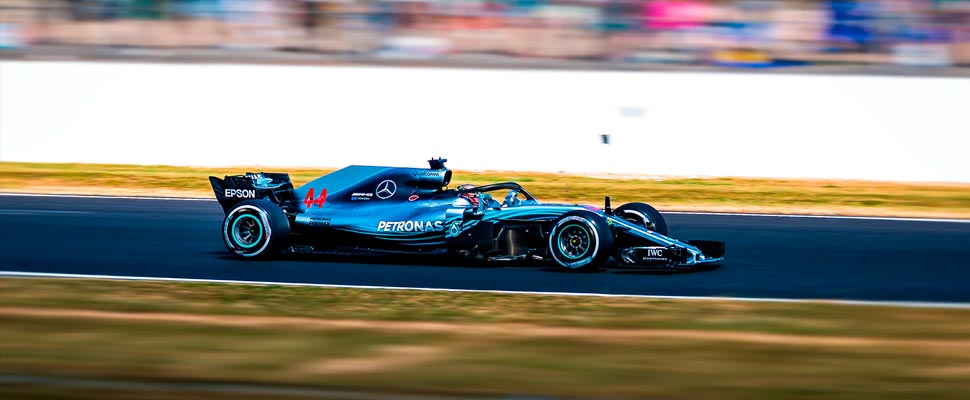History Mercedes: from nothing to firm dominant Formula 1
The German team went from being just another team to winning 7 titles in the last 10 years, what is its history? .

Mercedes has been achieving 7 consecutive titles as a team and positioning its driver Lewis Hamilton as the best of all time. / Photo: Pexels
LatinAmerican Post | Juan Bacallado
Listen to this article
Leer en español: Historia Mercedes: de la nada a firme dominante la Fórmula 1
At present, you cannot talk about Formula 1 without mentioning Mercedes, and this is due to the total dominance that the German team has achieved in the last decade, to the point of ending the great historical ones like Ferrari and stopping the winning streak of Red Bull In this way, Mercedes has been achieving 7 consecutive titles as a team and positioning its driver Lewis Hamilton as the best of all time with numbers that support it , however, before winning its first title as a constructor, Mercedes did not even seem like a team competition that could achieve this, so how did it happen?
@LewisHamilton (Mercedes) gana en Imola y con esto suma el séptimo título de constructores en la @F1. La escudería alemana además superó el récord que mantenía con @Ferrari
/foto @AFP pic.twitter.com/sOQnSgOgyd— Dereck Blanco (@Dereckb) November 1, 2020
Arrival to Formula 1
Before 2010, Mercedes had not competed in Formula 1 as an individual team until the 1950s, when in 1954 the Argentine driver Juan Manuel Fangio left the Maserati car to get into a Mercedes after three races of the season had already passed. , but the decision was not a mistake since despite being the debut of the German brand in this sport, in the same way, Fangio managed to win that race of the French Grand Prix, while in second place the other Mercedes car would also arrive, thus debuting with a 1-2 according to Silver Arrows. Fangio would be champion that season, attributing to Mercedes the constructors' championship – at that time the team was called Daimler Benz AG -, which at that time had not yet been created.
Unknown
1955 Argentine Grand Prix (Buenos Aires)
#2 Juan Manuel Fangio (Mercedes-Benz)#Formula1 pic.twitter.com/thr3NLEcDW— Owen Edwards (@o_ensan) January 16, 2016
In 1955 Fangio would run the whole season with the Mercedes car, in addition to him there would be 5 other drivers running with the German team, since at that time there was no current rule in which each team can only have two drivers competing. That season would also be a success for Mercedes with Fangio crowning Formula 1 champion, however that would be the end of Mercedes in Formula 1, because, after a serious accident with his car in the 24 hours of Le Mans, where more than 80 people died, Mercedes experienced an economic and reputational crisis for which it left the motorsport.
Mercedes would return, but not alone
In 1994 the name Mercedes would appear again in Formula 1 after 39 years, but it would only be to supply engines to the Sauber team, the following year it would partner with McLaren to provide the engine, together they managed to win up to 78 races, a constructors' championship in 1998 and three champion drivers, this alliance would remain until 2014, although McLaren already confirmed that this 2021 they would work with Mercedes again. However, Mercedes would not dare to work independently until 2010, this after a year before supplying engines to Brawn GP, that same 2009 they won the drivers and constructors championship, so the owners of Mercedes decided to sell their shares in McLaren and buy Brawn GP, so in 2010 the team would enter Formula 1 under the name Mercedes GP Petronas Formula One Team.
The hybrid age, the Mercedes age
When Mercedes officially arrived in Formula 1, it would find the beginning of power Red Bull, who would win the drivers' titles with Sebastian Vettel and the constructors' titles for four consecutive years, in 2013 Mercedes would reach the constructors' runner-up, beating Ferrari for the first time. From then on, everything would be excellent for Mercedes after the FIA – Formula 1 regulator – gave the end of naturally aspirated V8 engines and the hybrid era with V6 turbo engines will begin, where only Mercedes would know how to adapt better than anyone, according to a review. Motorpassion.
It may interest you: Behind the pilot: Who makes up a Formula 1 team?
Mercedes took advantage of the foundations left by Ross Brawn, who was director of Mercedes until 2013 and previously had been director of Ferrari in the winning time of Michael Schumacher and director of Williams where he also won two championships, Brawn had a great knowledge of the competition and It had already prepared hybrid engine designs for debut in 2014 after the FIA announced guidelines for the hybrid era in 2011, according to Fox Sports. That same 2011 Brawn created a planning team solely to prepare the cars for 2014, in fact, Geoff Willis, head of that team, did not pay attention to the performance of Mercedes those years, but only concentrated on the hybrid era.
Mercedes alcanza las victorias en la era híbrida (2014-2020).
-Mercedes: 100
-Ferrari: 17
-Red Bull: 16
-Alpha Tauri: 1Han ganado 3 de cada 4 carreras (74,6%) desde 2014.
Oficialmente, han firmado la racha más dominadora de la historia: 7 títulos consecutivos. #F1 pic.twitter.com/gECuJ66JZl
— Sp_ | Fórmula 1 (@Formula1Sp_) November 2, 2020
The 2014 season was the prelude to what would happen in the following years, with a wide dominance of Mercedes that in the first year of the hybrid era managed to win the constructors' championship by much difference since its drivers also achieved 1-2 in the championship, and is that while other teams were affected by the new regulations and regressed, Mercedes had waited for this moment for three years, in addition, all their car is designed and manufactured by themselves, this is the reason why the team achieves solutions Fast and direct communication between members to improve every aspect of the vehicle, from the chassis to the engine, this made Mercedes the most reliable and durable single-seater in modern Formula 1 and an all-season champion since 2014.
Some Mercedes numbers
Mercedes' success can be summed up in numbers, according to F1 Stats, Mercedes has won 115 Grand Prix to date, and although it is not the team with the most victories, it is the most efficient, as it has won 50.6% Of the races held, Ferrari, who follows, has an efficiency of 23.6%. Its W07 model used in 2016 is the car with the most victories in F1 with 16 Grands Prix. He also holds the record for the most podiums in a season with a total of 33 podiums in 2016.




